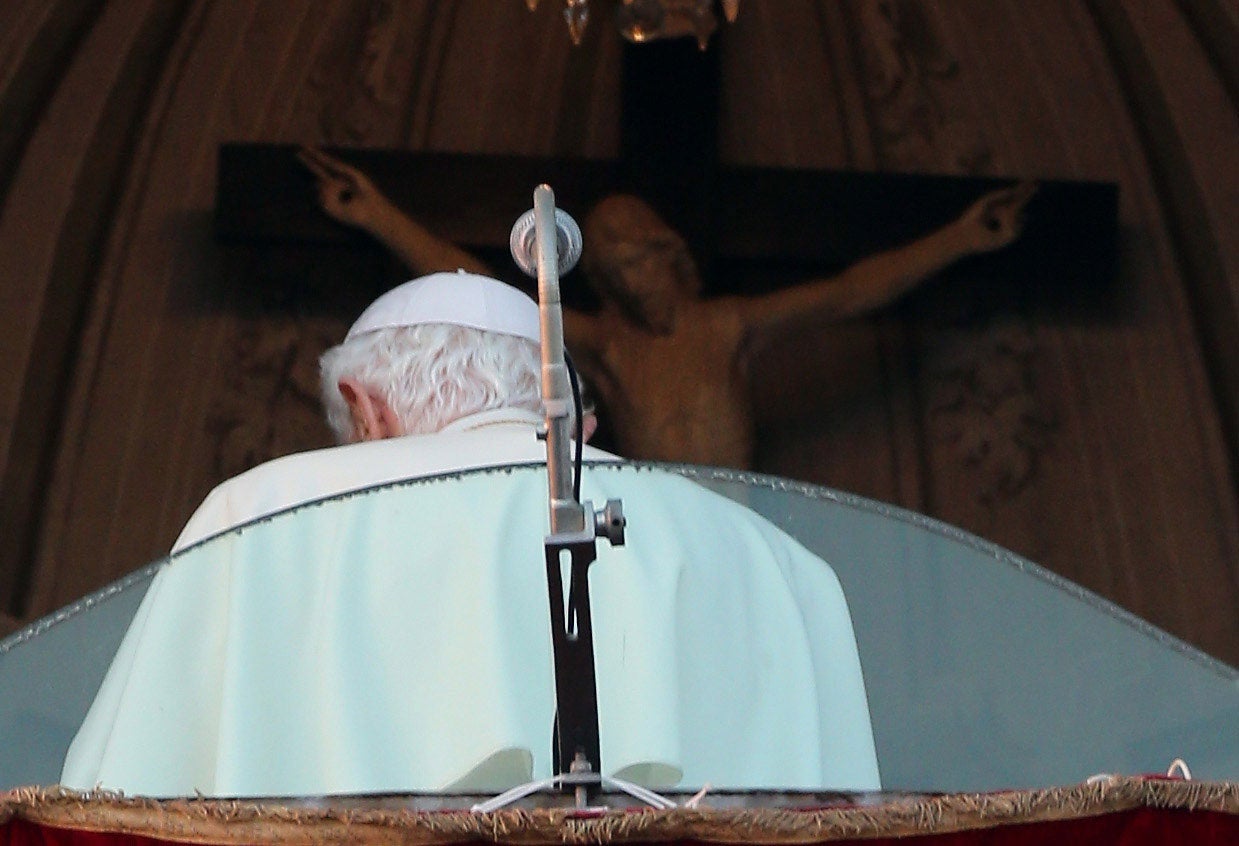A shift in the Vatican? If you believe the Pope is retiring, you’ll believe anything
Plus, the so-called "Friends of Syria" have taken the worst of all possible courses

And, so, farewell, Pope Benedict XVI. Or is it? When Holy Roman Emperor Charles V gave up all temporal power in 1556 and retired to a monastery (admittedly with a retinue of 50), it was to an austere establishment far from the seat of imperial power. Pope Benedict, by contrast, is retiring to a convent in the Vatican grounds. He has kept his white garb, the title of Pope Emeritus, and a private secretary who remains in charge of the private office of his successor. If that is an act of an ailing man determined to make peace with his maker, it is a very odd way of going about it.
One thing that His Holiness – as he must still be addressed – has achieved by his shock decision to relieve himself of the burdens of office is to give his move an air of almost saintly humility.
According to this version of events – widely subscribed to by the faithful and by religious commentators – here was a modest, bookish man who accepted the mitre of pope only with the greatest reluctance. He did his best to manage an impossible job and was finally brought down by a fractured Curia which his unworldly character was unable to master.
All that would be fine if he was a genuinely contemplative soul pushed into office. But this was the man who, for nearly 25 years, was head of the Congregation for the Doctrine of the Faith, as the Inquisition is now called, a position right at the top of the Curia in which he now claims to be an innocent.
He was not known as Pope John Paul’s “Rottweiler” for nothing. Even aside from the question of protecting paedophile priests, he spent much of that time censoring and suspending those of liberal persuasion while making endless efforts to bring back into the fold the die-hard opponents of the Vatican II reforms who had left it.
No one who saw him on the balcony on his election as Pope giving the triumphal gesture of a footballer who’d just scored a goal could doubt he wanted the job. Once on the Papal throne, he determined to make the Church in his own image, appointing no fewer than 67 cardinals, nearly all of them traditionalist in their views.
The legacy he leaves is a conclave packed with conservative European cardinals, a Curia unreformed during his three decades of power in it, and a Church which the European young are deserting in droves. Meanwhile, the faithful are sorely tried by Benedict’s authoritarian orthodoxy on social and theological issues.
In the light of this, his final decision effectively to fire Britain’s most senior Roman Catholic, Cardinal O’Brien, seems less the decisive act of purging – which is how some have interpreted it – than a further example of the vicious infighting which is bedevilling the Catholic Church.
Indeed, it is very hard to see anything radical coming out of the election of a new pope, let alone the root-and-branch reform of the Curia which so many are now asking for. The European cardinals, who still make up the majority of the conclave, are much of Pope Benedict’s own mind. Too many of them are from the same theological college background as himself, with the same lack of parochial experience. None is known as an institutional reformist.
On the other side are the cardinals from the developing world. While their flocks are on the increase, their chief challenge is not decay at the centre but the competition from the evangelical churches. Their interest will be in populist appeal among the masses, not institutional reform in Rome.
His Holiness Pope Benedict will continue to use his influence, of course, but not in the interests of change.
Promises aren’t enough for Syria
The meeting in Rome of the somewhat superciliously named “Friends of Syria” has only just made it to the conference hall after the main opposition group in Syria said it wouldn’t attend because of the paucity of Western help to its cause. John Kerry, the new US Secretary of State, was forced to say that the US would offer more.
It’s a nonsense spat. The insurgents in Syria know that they can’t afford to snub a group of countries on their side. The US State Department, however determined to avoid direct military involvement, fears that the longer the war goes on the greater the danger from fundamentalists. So what we are getting is what we have seen so often in the past: a creeping entanglement in which the West, while refusing to put boots on the ground, ups the “non-lethal” assistance with body armour, training and supplies, and becomes enmeshed not just in bringing down Assad but trying to determine who will come out top when he falls.
This is the worst of all possible courses. Body armour isn’t the answer. Mounting a major humanitarian effort to provide food and shelter to the refugees is.

Join our commenting forum
Join thought-provoking conversations, follow other Independent readers and see their replies